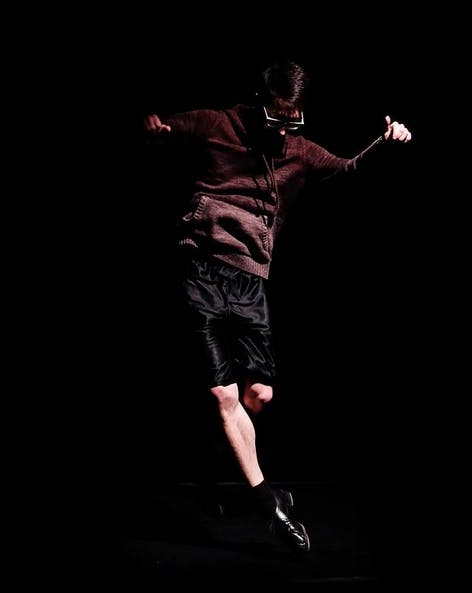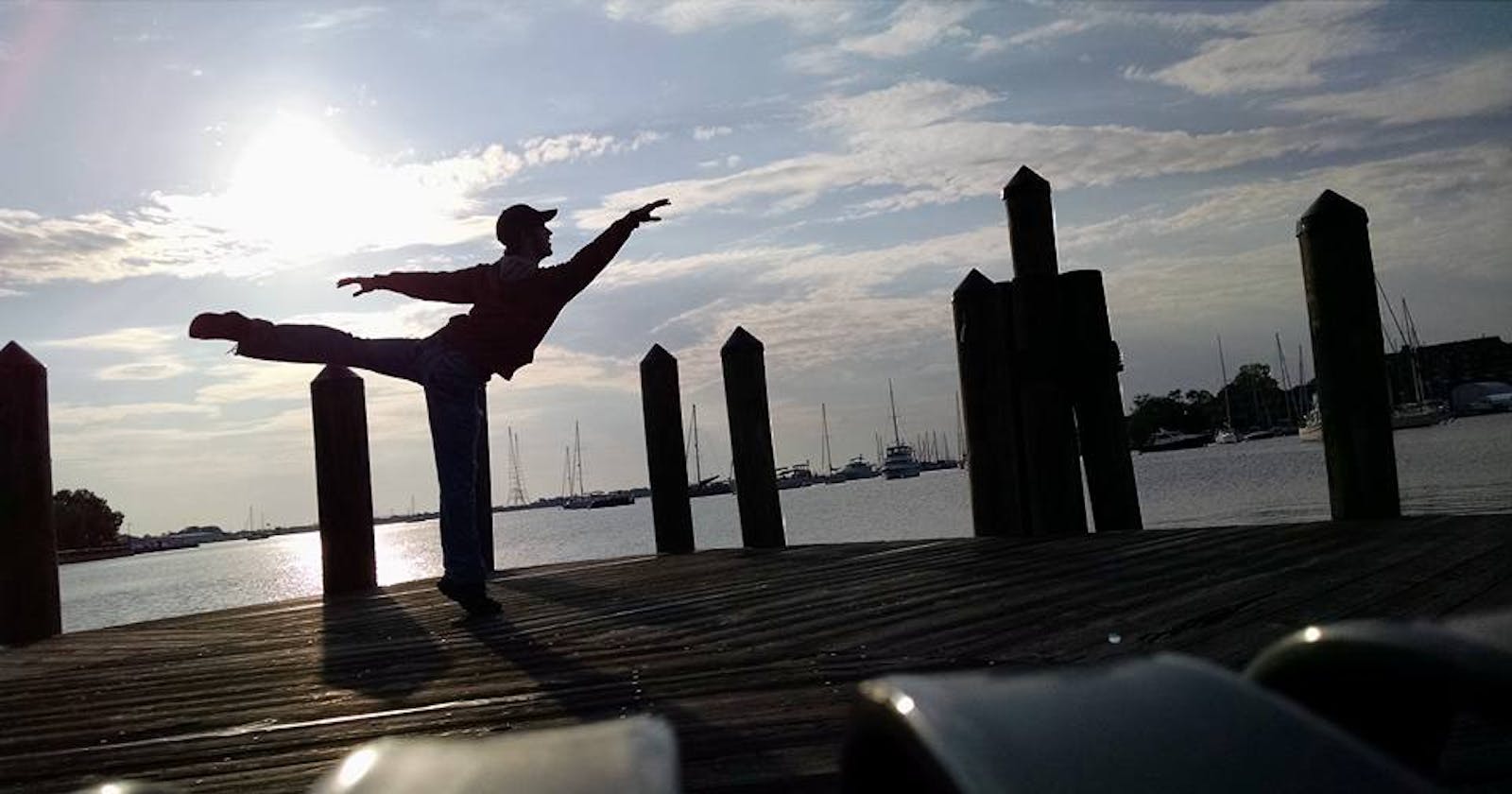A decade of ballet taught me...
An introduction to me, through the lens of (probably) my most interesting experience :)
My Background in Dance
As a kid, a ballet company (and academy) visited my elementary school and helped about 30 of the students put together a little performance -- it was super fun! They had a scholarship program, and invited us to audition... and I was accepted!
To be brief, I spent about 12 years involved with dance, between late elementary school and all through undergrad. Before college (tiny informal dance program), my training was very rigorous, and produced dancers of professional quality.
I had two dance "languages":
Ballet was my primary form -- I understood certain general ideas naturally, but ballet in itself is wildly technical and was always hard work. It was learned; I was never an exceptional ballet dancer, but rather a technician who knew the details and could teach a class to students with more "talent" than myself.
Tap is my (foot's) native tongue; something in me just understood. I quickly picked up the more dexterous and tricky steps, and improvement was a relatively simple matter of making sure the sounds were clean and grinding them into my muscle-memory. I loved it.
Unfortunately though, this natural fluency in tap meant that I had much less knowledge about it when compared to ballet. I didn't understand as many of the technical details, and I didn't know the process of learning them. I spoke tap like a native, but don't ask me to define the tap-dance-equivalent of a gerund.

Wasn't the title about learning something?
Oh, yeah! My bad.
Above, I juxtaposed my experience in two forms of dance for a particular reason:
I noticed quite early that there are very, very many different degrees of knowledge, understanding, and ability in any given subject area. There is no complete "knowing". There is always more. You can always broaden and deepen understanding. You can always refine technique and execution.
And that's awesome.
And a little overwhelming sometimes.
But in a good way.
Yes.
Usually.
...
Whew.
Moving forward!
This is how I've come to see the world.
I am myself as a direct result of the years I spent in dance training. I could write on it almost endlessly, but I want to share these thoughts with you. They are dear to me.
Persistence and discipline are the foundation of improvement.
Particularly in the tech community, you may already know this. I encourage everyone to honestly reflect on it from time-to-time. Thing is hard. And no matter what Thing is: Learning it will be a process, not a moment.
Even in dance attire that hides nothing, being corrected by an instructor in front of a room of twenty other dancers -- the only way upwards is to accept that critique is constructive, and that to be defensive is to reject an opportunity for growth.
Beauty and accomplishment come from doing something so many times that it becomes an art.
Have you ever seen someone do something so perfectly that it was beautiful?
How well-practiced do you suppose they were in that something?
And after so much practice -- how do you suppose they regard that something? Is it just a rote execution of memory? Meaningless? Almost certainly not. More than likely, it is in some way personal to them. They (however humble) are probably proud of it; it is a way in which they are exceptional. It is artful.
It is beautiful to witness someone doing something like this. It is beautiful to see them, when they see that someone thinks that their art is beautiful.
(A quick moment for trivia: "Art" is of the Latin root "ars, artis" meaning "skill")
When you study an art, you recognize beauty hidden in everything.
The more often that you allow yourself to pause and witness these arts in action -- the more frequent they will seem to become.
You will notice not only people "in action" performing their art, but also evidence of their art on its own in the wild. Here's what I mean:
You may not see a chef julienne a batch of vegetables, but you will see the precise uniformity of their cuts; you will know the care they'd taken and the years of practice it took to produce it.
You may not see a gardener tending their beds, but a very keen eye may notice that they had taken the care to research their region's native flora, and had arranged them so that they are not only pretty, but also productive for their environment.
I can still see someone on the street, and silently appreciate their posture, gesture, and gait -- I can see that they are a dancer, and understand the hard work and artistry that they apply every day in the studio.
Every thing, and every skill, can be an art.
Anything. Absolutely anything. There is no such thing as "insignificance".
It does not have to produce income.
It does not have to bring other people joy.
It does not have to make sense.
If you spend time and energy on a thing, you have grown as a human as a direct result of having invested time and energy on the thing.
Your perspective has broadened, deepened, and become more interesting.
I didn't intend for this to turn motivational, but while I'm here, go do the thing!
In closing...
When someone performs their art, I want to understand it. I seek these new ideas at every turn, so that I can appreciate their beauty -- That beauty inspires my learning.
Later, I will remember my new skill -- that person's art -- and use it to make my own work better.
More informed. More effective. More efficient. More beautiful.
Your art is fascinating... tell me about it!
Contact
I'm still building my portfolio site, but please find me in these places!
Twitter: @collin_sparkles
GitHub: spark-c
